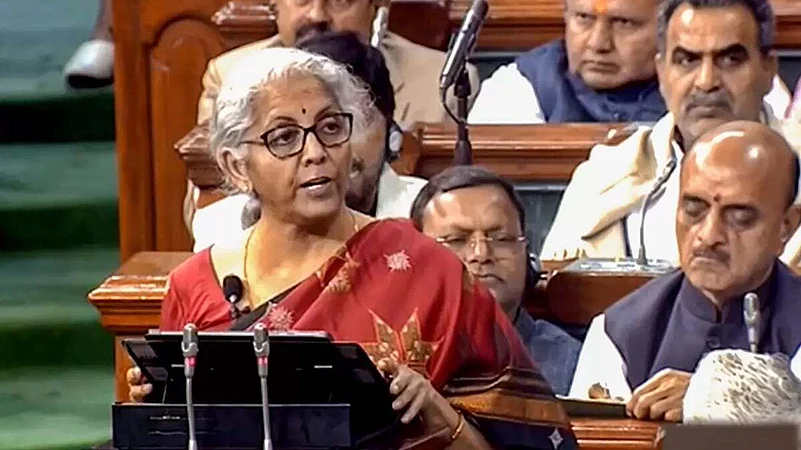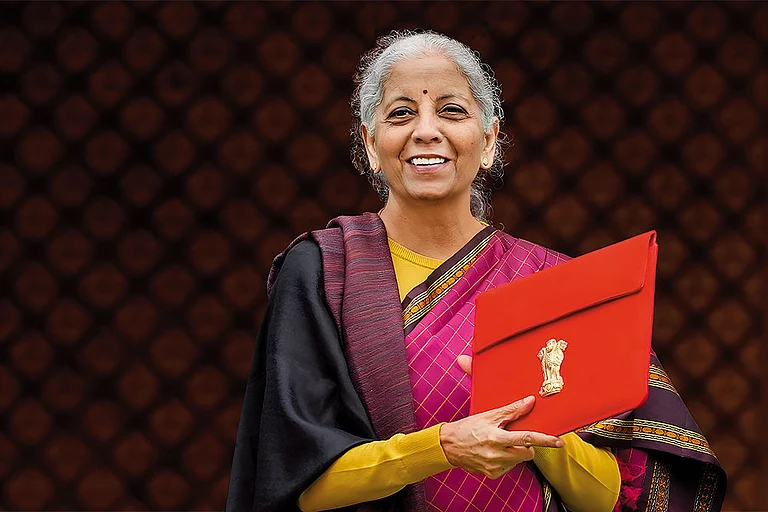The new Income Tax Bill is expected to be tabled in Parliament this week. The Bill was cleared by the Union Cabinet on February 7, 2025. Union Finance Minister Nirmala Sitharaman, during her Budget 2025-26 speech, announced that the new Income Tax Bill would be presented in the current parliamentary session.
“In respect of criminal law, our government had earlier ushered in Bharatiya Nyaya Sanhita, replacing Bharatiya Danda Sanhita. I am happy to inform this august house and the country that the new income tax bill will carry forward the same spirit of Nyaya in its drafting as well. The new bill will be clear and direct in text with close to half of the present law, in terms of both chapters and words. It will be simple to understand for taxpayers and tax administrators, leading to tax certainty and reduced litigation," Sitharama during her Budget 2025-26 speech on February 1.
After being tabled in the Parliament, the new bill will be sent to the Standing Committee on Finance for review. The ongoing budget session's first phase is set to conclude on February 13. The second phase will resume on March 10 and continue till April 4.
The new Income Tax Bill will replace the existing Income Tax Act, 1961 as it aims to simplify and modernise India’s tax system, making compliance easier for taxpayers. "The new bill will not add any new tax or compliance burden to taxpayers," Union Finance Secretary Tuhin Kanta Pandey had earlier confirmed in a media interaction.
What Insurance Policyholders Can Expect From New Income Tax Bill?
Here’s what insurance policy holders can expect from the new Income Tax Bill. Kunal Varma, Co-Founder and CEO, Freo, says: “The new Income Tax Bill is expected to simplify tax laws, reduce legal complexities, and make compliance easier—something that insurance policyholders have long hoped for.”
According to Varma, on major expectation is the enhancement of tax deduction limits for life and health insurance premiums, particularly under Sections 80C and 80D.
“Increasing these limits will provide stronger financial incentives for individuals to secure adequate insurance coverage,” he says.
Additionally, he says, “Policyholders want assurance that the maturity amount from life insurance policies remains tax-exempt as long as premiums paid do not exceed a certain limit, ensuring that their long-term financial planning remains intact.”
According to Varma, “Another crucial aspect is the need for targeted tax benefits that can boost insurance penetration in Tier 2 and Tier 3 cities. By making insurance more tax-efficient and accessible, the government can drive deeper adoption and financial security across a wider population.”
Pankaj Nawani, CEO, CarePal Secure, says, “The tax deductions might not be there for life and health insurance but extra money that will get saved will be utilised not only for consumption but also for better protection. It will also give a fillip to the employer-employee protection plan which can be made flexible. The provisions of making proceeds from life insurance policies bought from Gift City could see a lot of HNIs and the upper middle class get interested.”
Ankit Garg, CEO, Wealthy Nivesh, says, “While there is still no clarity on the kind of taxation that should apply on old assured products – some claim that they should be taxed for capital gain part only while others claim that whole corpus is taxable – the recent introduction of tax-free premium limited to 5 lakhs per year added more confusion.”














